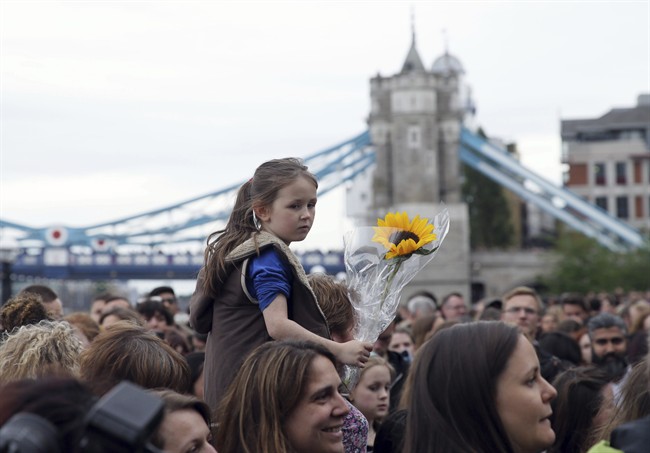With recent worldwide terrorist attacks in mind, André Gagné, a theology professor at Concordia University who specializes in religion and violence, said the key to improving anti-radicalization and terrorism prevention strategies in Quebec is to include members of different religious communities in their implementation.

Gagné also said we need to understand that Islamic extremism is not the only kind we see today in Canada.
“One of the questions we’re asking ourselves as researchers here in Quebec is the dangers of polarization of ideology,” Gagné said.
“We are seeing a rise of certain right-wing groups in Canada and in the province of Quebec, that is reacting to what is happening across the world.”
READ MORE: Manchester explosion: authorities have good reason to call this a terrorist attack, expert says
Extremism creates more extremism, according to Gagné.
“The jihadist project is essentially a project of terror and division, and what they try to do is to paralyze people so they do not go about their day-to-day lives, scared of actually going anywhere or doing anything,” he said.
Gagné argued it explains why some Quebecers react negatively to accepting refugees.
“Being scared that if we accept refugees there is a chance of terrorism attacks.”
Rex Brynen, a political science professor at Mc Gill University, agrees that strategies to prevent radicalization must include voices from Muslim communities.
“In terms of community involvement, it is pretty much the case with all communities,” Brynen said.
Community involvement is the primary source of information for any kind of policing, whether it is drugs or gangs or terrorism.
Brynen said he doesn’t think there is a “profoundly deep” sense of alienation in Quebec,but that doesn’t mean there isn’t more that can be done – especially when it comes to prevention.
READ MORE: Many factors can contribute to youth radicalization: Quebec report
“In the UK, for example, schoolteachers or people who have contact with youth participate in preventative strategies,” Brynen said.
“They have much more of a gap between sections of the Muslim communities. Canada’s gap tends to be lower. Most, not all, of our Muslim communities are actually very successful socioeconomically so we have a little bit less of an integration issue.”
Gagné suggested the best prevention for radicalization is something that is done in the United States but he has yet to see in Canada.
READ MORE: College de Maisonneuve receives $400K to combat radicalization
“They manage to interview people who were disillusioned, who returned from the Caliphate,” Gagné said.
“For those people who are tempted to go to places of conflict, if they are exposed to testimonies or witness people who went through the process and were disillusioned, that might tempt them to not get involved.”
In Gagné’s research he has learned that ex-members of extremist groups who return to North America after learning the Caliphate was not the paradise they were promised are the best teachers of de-radicalization.
“The success we have seen that could be helpful in preventing further radicalization or trying to help people disengage in violence somehow is if you have people or foreign fighters who wanted to go to conflict areas but eventually came to their senses,” Gagné said.
“It is all about credible voices for these people that are radicalized. So we need to find credible voices for these anti-radicalization programs.”
READ MORE: Ottawa’s anti-radicalization centre to look at all forms of hate including alt-right: Goodale
The one Quebec centre that has government funding for projects like this – the Centre for the Prevention of Radicalisation Leading to Violence – tries to ensure that the communities take part in their initiatives.
“It’s a lot of education, dialogue, tackling grassroot causes,” Marian Misrahi, the projects coordinator at the centre said. “Really be proactive and intervene as early as possible. Be open to dialogue always.”
Besides awareness campaigns Misrahi said they try to include people who were once radicalized in their training sessions, adding they have a former far-right extremist from Quebec and use a comic book written by people who went to join jihadists in Syria.
“It’s a way of reconciliation,” Misrahi said. “It helps us understand what we can do as a society to avoid that other people feel excluded or vulnerable.”
She said that although phone calls increase after a big attack like Manchester or the Quebec City mosque, it does not mean there is a rise in extremists — either Islamic or far-right.
In the end, Gagné said, even if there is more work to be done in Quebec, there is much more of a chance of dying of cancer or heart disease than in a terrorism attack – 35,000 times more.
“It is important to not let fear paralyze or divide us,” Gagne said.


Comments